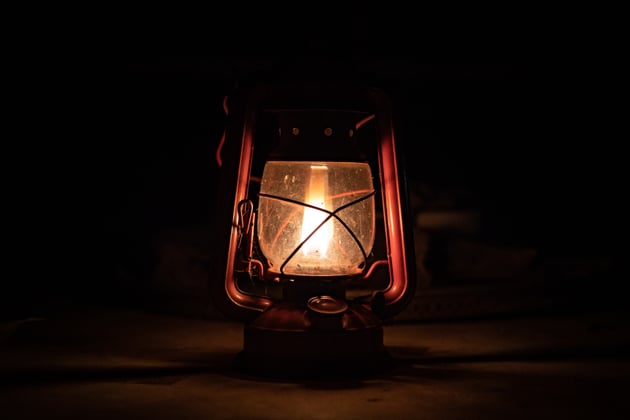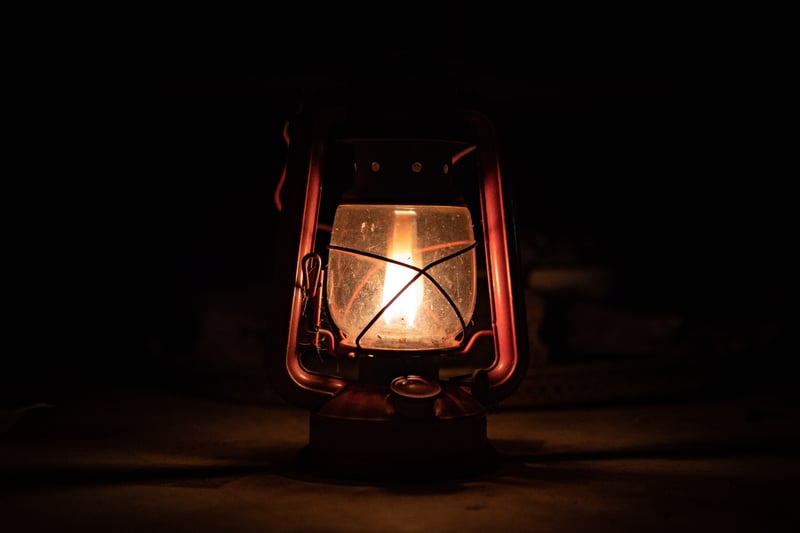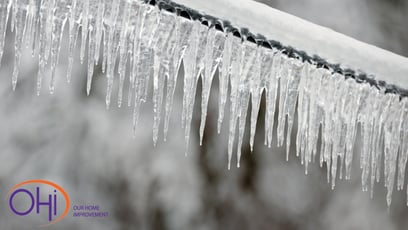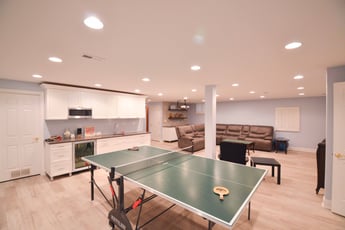Take Back the Power: How to Protect Your Home and Family During a Power Outage

Mark Livesay


Too often, as homeowners, we are blindsided by occurrences such as power outages, flooding, and freezing temperatures, not realizing there are ways we can protect both our homes and our families no matter the situation. With the right amount of preparedness and fore-knowledge, we can have a plan and take action when the need arises. One of the most common occurrences on the list above is power outages. Whether from inclement weather (we’re looking at you thunderstorm season), or a furry creature gnawing at powerlines, almost every homeowner has experienced a blackout. While some are seasoned pros, others may experience a surge of panic. Luckily, there are a few simple steps to take to make your experience with power failure a safe success.
Be Prepared
In any stressful situation, it helps to have a game plan. Preemptively planning for a power outage is no different. While it is not likely you will experience a Texas-sized outage, you never know what circumstances you will be in, and preparing for the worst helps the process feel more seamless. Here are a few things to keep on hand in case of a power outage.
Power Source
The best solution to a power outage is to invest in a home generator. While there are various types of generators, the two most common are the Home Standby Generators and the Portable generators. The standby generators are often strong enough to help power your whole home, including appliances such as refrigerators and freezers. The downside is the hefty price tag. For something that may not be used frequently, a standby home generator is a significant investment.
A more attainable product is a portable generator. These can help power smaller items, and offers are far more limited power capacity. However, some power is better than no power in these situations. It should be noted that most portable generators run on gasoline, and therefore should only be used outside to prevent carbon monoxide poisoning.
Regardless of which option you choose, note that generators, no matter the size, have a limit to how much power they offer, and cannot sustain electricity long term. If you’re interested in learning more about power generators, and which one you should invest in, check out this guide made by Bob Vila.
Light Source
In the past, the most common light source for families has been candlelight. While this is still a viable option, it is also the riskiest as it creates a potential fire hazard. Flashlights are another common light source people use during a power outage. We have to agree that this is an excellent option is it is small, lightweight, and portable, without the danger of fire.
We also recommend investing in a few camping lanterns. Battery-powered will serve your purposes better since a rechargeable one will be rendered useless if the power outage lasts long enough. If you’re interested in finding the best camping lantern, check out this list from Gear Junky.
Regardless of what you choose for your source of lighting, always remember to have an ample supply of matches and batteries, as a candle and battery-operated lamp or flashlight will be useless without them.
Food Source
In the case of a power outage, you don’t want to open your refrigerator or freezer in order to help preserve the perishable food stored inside. This means the best power outage plan includes having a supply of non-perishable goods that don’t require a heat source for cooking (unless you invest in a camp stove). Some great options to include in your stockpile would be granola bars, applesauce cups, beef jerky, and crackers. While there are other foods to choose from, simply remember it needs to have a long shelf life and shouldn’t require cooking. If you choose canned goods, be sure to also keep a manual can opener on hand.
Pro-tip: while water may still be accessible during a power outage, certain occurrences can make the water unsafe to drink, which is why is always smart to keep water bottles or gallons of water stored in case of an emergency.
Communication Access
We live in a world heavily reliant on cell phones and Wi-Fi. Our handheld devices give us access to instant communication and information. It seems like it would be a must-have during an emergency. However, some power outages equate to no cell service or restricted internet access. Other times, while your phone is fully functioning, its battery life is limited. Either way, have alternative communication access is important, which is why we recommend investing in an emergency radio. This will offer you access to information regarding weather updates or resources in an extreme emergency, such as the location of the nearest warming center or if evacuation is necessary. To help find the right emergency radio for your needs, check out this list by Bob Vila.
In times where your cell phone is still functioning, be sure to conserve its power. Only use it for emergencies, such as calling for help or informing the family of your safety. We recommend keeping a few portable charging banks fully charged. This way, if the power outage lasts for a while, you will have a way to keep your phone charged. This is also when a portable generator would be useful. Also, at the first signs of inclement weather, start charging your devices in case of a power outage.
The Lights are Out. Now What?
One day, during freezing weather or a stormy night, your power actually goes out. Maybe it flickers at first as a pre-warning, or maybe you’re enveloped in sudden darkness. Either way, you are prepared. Start by assessing the situation.
- Check your phone power and service. If you have reception, call your power company right away. They will likely provide you with an update and estimated timeline for power restoration. From there, you will know how best to conserve the resources you have stockpiled.
- If you have a standby generator, you can turn it on. If not, it is recommended that you unplug large appliances and devices to help protect your products because when power returns, there is often a surge that can destroy or damage the product. Leave one light “on” to help alert you when the power returns. Even if you have a generator, limit what you use, as there is still a limited power supply to consider. This means turning off the air conditioner or reducing the heat, or foregoing the television for a few hours.
- As mentioned before, keep the freezer and refrigerator shut to help keep your food safe Food in the refrigerator will stay chilled for 4 hours, while a freezer, if packed, will stay chilled for up to 48 hours. That time is significantly reduced if the doors are opened.
- Be cautious of carbon monoxide poisoning. For example, only light your fireplace if you have kept up with its maintenance. Any blockage can result in carbon monoxide poisoning. Similarly, if you have a gas stove, or camping stove, ere on the side of caution. Most experts recommend not using your gas stove, and the camping stove should only be used outside. All generators should also only be used outside to prevent poisoning.
- Tune into your emergency radio to monitor for any updates.
- If you are in any danger, such as from freezing temperatures, evacuate and find a safe place to stay.
If you have any questions, or want help weatherizing your home and selecting the perfect generator, contact us today. OHi has been helping families in Chicago and its surrounding suburbs remodel and protect their homes since we founded our family business in 1900. We’ve been improving our neighborhood one home at a time through expert advice, exclusive products, and exceptional service. If you’re considering a remodeling project, give us a call or fill out our project discussion form. Our team members are excited and ready to get to work on your dream space!

Mark Livesay
Blog posts
Related Articles.


Jeff Kolota
Pointers To Protect Your Plumbing In Polar Conditions
Similar to how you call your mom for a recipe or your auto-mechanic uncle when your car makes a...

.png)


Leave a Comment